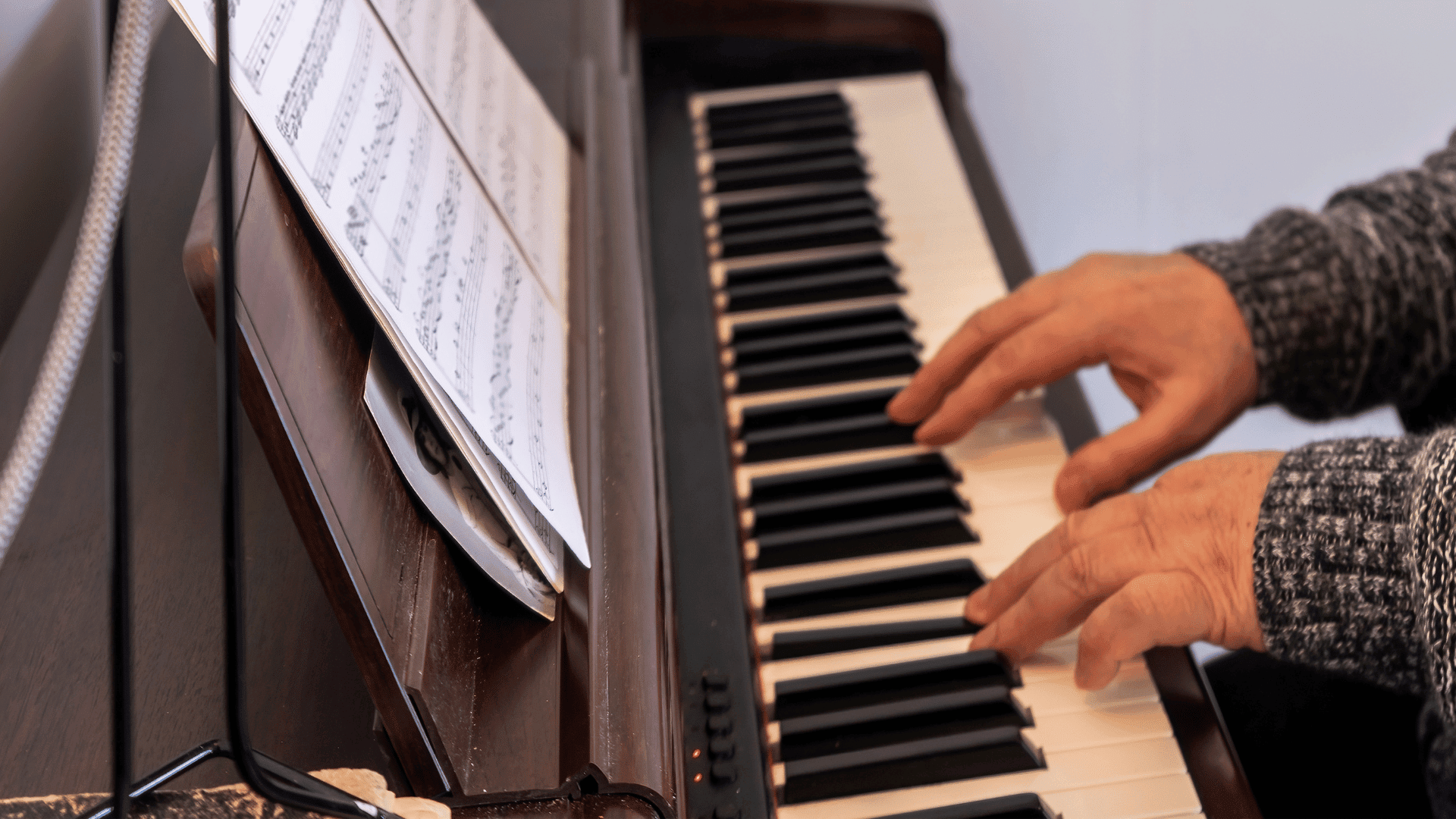Researchers suggest music promotes healthy cognitive aging. A study shows that a lifelong engagement with music could be a powerful “shield” against the cognitive declines associated with getting older.
A research team from the Chinese Academy of Sciences uncovered the positive impact that long-term musical training has on age-related difficulties in speech perception. According to the press release, musical training strengthens “cognitive reserve.” Their findings were published in PLoS Biology.
Music’s Impact on Aging

It’s common for cognitive functions to decrease with age. Unfortunately, it leads to challenges in perceiving or recognizing speech, especially in loud environments. Previously, research has indicated older adults often compensate for this by activating additional brain regions. However, the interaction of functional compensation and cognitive reserve remains unexplored.
Researchers recruited three groups to explore the intricate relationship between functional compensation and cognitive reserve. The recruited groups included older musicians with over three decades of instrumental training, older non-musicians, and a control group of young adults.
Participants from each group underwent a functional MRI scan. During the scans, the individuals participated in a syllable identification while listening to background noise. The study focused on neural responses within the auditory dorsal stream, an important network for processing sound and combining it with motor functions during speech.
Researchers found that older musicians showed reduced decline in their ability to understand speech in loud conditions compared to older non-musicians. Meanwhile, the older non-musicians showed “increased functional connectivity within bilateral auditory dorsal streams.” Researchers say this is a typical response to compensate. However, the older musicians reportedly maintained connectivity patterns similar to the young adults.
“Just like a well-tuned instrument doesn’t need to be played louder to be heard, the brains of older musicians stay finely tuned thanks to years of training,” said Dr. DU Yi, the study’s corresponding author. “Our study shows that this musical experience builds cognitive reserve, helping their brains avoid the usual age-related overexertion when trying to understand speech in noisy places.”







